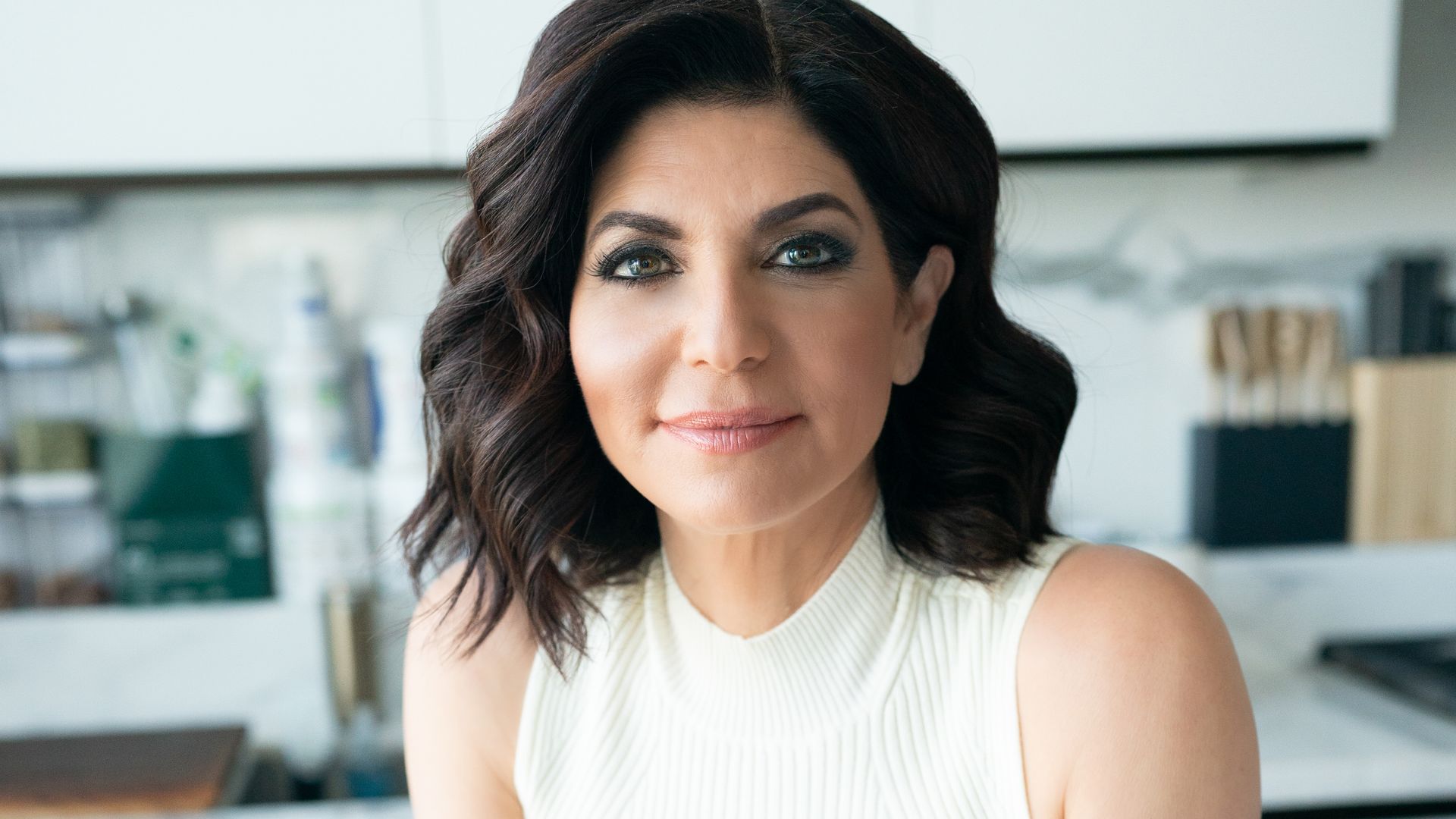Former Emmy-award winning news anchor, Tamsen Fadal has made quite the name for herself in the perimenopause space.
Known as the ‘midlife mentor’ to over a million followers on Instagram, Tamsen co-produced the groundbreaking PBS documentary, The M Factor - a film that powerfully documents the healthcare crisis being faced by millions of American women.
After being debilitated by brain fog at work, Tamsen witnessed first hand how perimenopause can profoundly impact both your personal and professional life.
"Here I was, a seasoned news anchor, reading from a teleprompter when I’d suddenly lost the word I was looking for,” she explained to HELLO! “Imagine having done something a million times, and then, out of nowhere, you can’t remember how to say a word like ‘subpoena.’ That was terrifying," she recalls.
And it wasn't just mental lapses that Tamsen found debilitating, it was the physical symptoms of perimenopause that were just as jarring. "Hot flashes would blindside me on air, making my heart race and sweat break out under the bright lights. It wasn’t just uncomfortable; it was like my body was betraying me."
It wasn’t until a defining moment on air that Tamsen fully understood the toll perimenopause was taking. "One night, I couldn’t go on with the broadcast. I was drenched, my heart pounding out of my chest, and I remember thinking, ‘I’m going to pass out if I don’t lie down.’"
That night was a wake-up call. The diagnosis of perimenopause months later finally put a name to Tamsen's experiences and, in some ways, brought her a sense of relief. "The word ‘menopause’ hadn’t even crossed my mind until I saw it staring back at me from a doctor’s portal."
Tamsen's experience was life changing, and she knew that she would need to adapt. "I’ve had to be very intentional with my energy. I realized that I couldn’t just push through the way I used to; that strategy wasn’t sustainable anymore."
"Coming to terms with it made me realize how little women are prepared for this phase and how isolated we often feel. That realization drove me to pivot my career and start using my platform to bring these conversations into the open."
Tamsen shares the most powerful ways to adapt your life during perimenopause too...
Set boundaries and breaks in the day
To manage her demanding schedule, Tamsen relies on strategies like time-blocking and building buffers between tasks.
"My biggest tip is to build in a buffer wherever you can. I’ve learned that ‘busy’ and ‘productive’ aren’t the same, and a packed schedule usually leaves little time for self-care. I used to power through no matter how I felt, but these days, I listen to what my body needs."
Make time for self-care
Tamsen also makes self-care non-negotiable, incorporating daily rituals like a morning walk and a simple skincare routine in the evening.
"Listen to your body. There’s strength in honoring what you need. If you need a break, take it; if you need support, ask for it. Powering through often just leaves us more depleted. Recognize that your health is the foundation of everything else."
Tackle brain fog by staying organized
Brain fog can be frustrating, but Tamsen’s found ways to stay organized. "I rely a lot on lists and reminders now. My planner has become my best friend for keeping track of deadlines and tasks, and I make a habit of writing everything down."
Digital tools like calender alerts and reminders also help, but the key for Tamsen has been learning to give herself grace. "Some days, I might need a little more time to get things done, and I’ve learned that’s okay."
Prioritize sleep
For many, perimenopause brings sleep disturbances but Tamsen has crafted a routine that prioritizes quality rest. "I start winding down at least an hour before bed, no screens, just a book or some gentle stretching."
Tamsen also uses a weighted blanket, which she finds surprisingly effective. "Creating this routine has made a difference, especially when work demands are high. And if sleep doesn’t come easily on certain nights, I’ve learned not to fight it."
Talk about your experience
“Early on, I realized I needed to share my experience with friends and colleagues,” Tamsen explains. “Their support made such a difference on tough days. Knowing that we’re in this together has been one of the most empowering parts of my journey."
And Tamsen believes communication is key in the workplace too. "If women feel they can’t talk about their symptoms, they’re going to suffer in silence. Flexibility, wellness spaces, and resources like seminars can go a long way in making women feel valued and understood."













